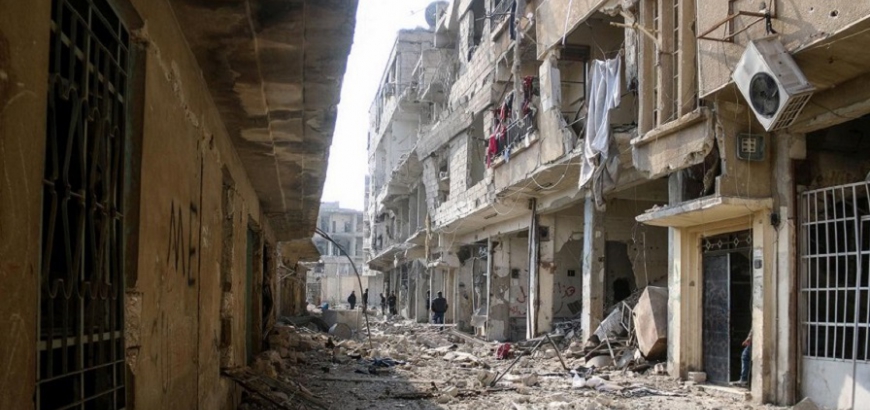Civil society organizations in the besieged Eastern Ghouta near the capital Damascus called on the United Nations and members of its Security Council to provide security forces and establish a path for civilians who want to leave the area and to implement Resolution 2401.
This came in the first statement issued by the Eastern Ghouta's “Civil Bloc,” which calls itself a “group of civil institutions, activists and actors working in local governance building, civil society organizations and medical, aid, media and union bodies to represent civilians and their wills.”
The statement said that the bloc “aimed to follow up on the current crisis' developments and attempt to lighten its effects and to stop the killing by implementing the relevant international decisions and seek international guarantees through U.N., international and regional channels.”
The statement called for “taking immediate measures necessary for a cease-fire, an end to pro-Assad military forces' shelling and invasion in the towns and villages of the Eastern Ghouta, the implementation of Security Council Resolution 2401 in an immediate, negotiated and peaceable manner, and the resumption of peace talks in Geneva.”
It also called for the United Nations and Security Council member countries, and those which have the power to influence events on the ground, to ensure security, safety and freedom of movement for civilians inside and among the Eastern Ghotua and the other Syrian areas.
It said that “civilians in the Eastern Ghouta – represented by the province council, local councils and civil society groups – must become a negotiating party in all efforts for negotiations and settlements related to the Ghouta which are discussed between the active parties, whether the U.N., international or local, so that they can decide their own fate and be given full support in that.”
It stressed the need to “pay special attention and find special mechanisms to guarantee the safety and security of those working in the local councils and medical, aid and educational institutions and other civil institutions, as well as those who are wanted for military service in the Syrian army and their family members inside and outside the Eastern Ghouta, with this done through practical, public, active and neutral guarantees on the ground capable of protecting them.”
It noted the importance that “a mechanism be created to monitor the issue, including representatives of the Security Council member countries and those willing to cooperate with the United Nations and representatives of civilians in the Eastern Ghouta and outside Syria.”
The statement noted the use of internationally banned weapons during the campaign, including chlorine gas, napalm and cluster bombs, in addition to phosphorus.
This article was translated and edited by The Syrian Observer. Responsibility for the information and views set out in this article lies entirely with the author.


